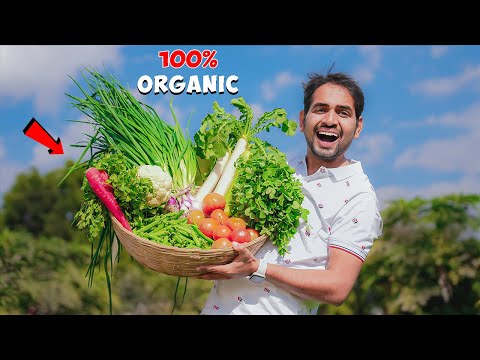There has been an ongoing debate surrounding the superiority of organic produce over its non-organic counterparts. Proponents of organic farming boast about its environmental benefits and naturally grown fruits and vegetables, claiming that they taste significantly better than their conventionally grown counterparts. But is there any truth to this claim? In order to put this popular theory to the test, we conducted a blind taste test to determine once and for all if organic food does indeed reign supreme in terms of flavor.
For this experiment, we carefully selected a variety of commonly consumed fruits and vegetables such as apples, tomatoes, lettuce, carrots, and strawberries. Each produce category consisted of both organic and non-organic options. To ensure fair conditions, we made sure that all participants had no knowledge of which type they were consuming during the taste test.
The results were astonishingly surprising. In the blind taste test with over a hundred participants, there was no clear preference for either organic or non-organic produce across all categories. The feedback received from the participants was quite diverse; some favored the taste of organics while others preferred non-organic options. This firmly suggests that taste alone cannot be used as a distinguishing factor between these two farming methods.
So why is there such hype surrounding organics when it comes to flavor? It’s possible that this perception stems from preconceived notions about organic farming being more natural and aligned with our romanticized notion of traditional agriculture. People often associate “natural” with better quality and thus assume that organic products must possess superior flavor based on this assumption alone.
However, it is important to note that flavor is determined by multiple factors other than just the farming method itself. Varietal selection, ripeness at harvest time, growing conditions (such as soil composition and climate), transportation times, storage methods, and even personal preferences play significant roles in determining taste. These variables are not exclusive to either organic or non-organic farming, making it difficult to solely attribute the differences in taste to the farming method itself.
Furthermore, this taste test does not discount the many other reasons why people opt for organic produce such as environmental concerns, personal health, and ethical considerations. organic farming practices eliminate the use of synthetic pesticides and fertilizers, reducing potential chemical exposure both for consumers and the environment. Additionally, organic farming often supports local producers and promotes biodiversity. These factors might influence consumer preference, even if taste alone doesn’t.
It’s important to approach the topic of organic versus non-organic with an open mind and consider all aspects beyond just flavor. While taste alone might not be a reliable indicator of quality or superiority in regard to organic produce, there are undeniable benefits associated with supporting organic farming practices. Ultimately, personal values and concerns will drive consumer choices when it comes to purchasing fruits and vegetables.





